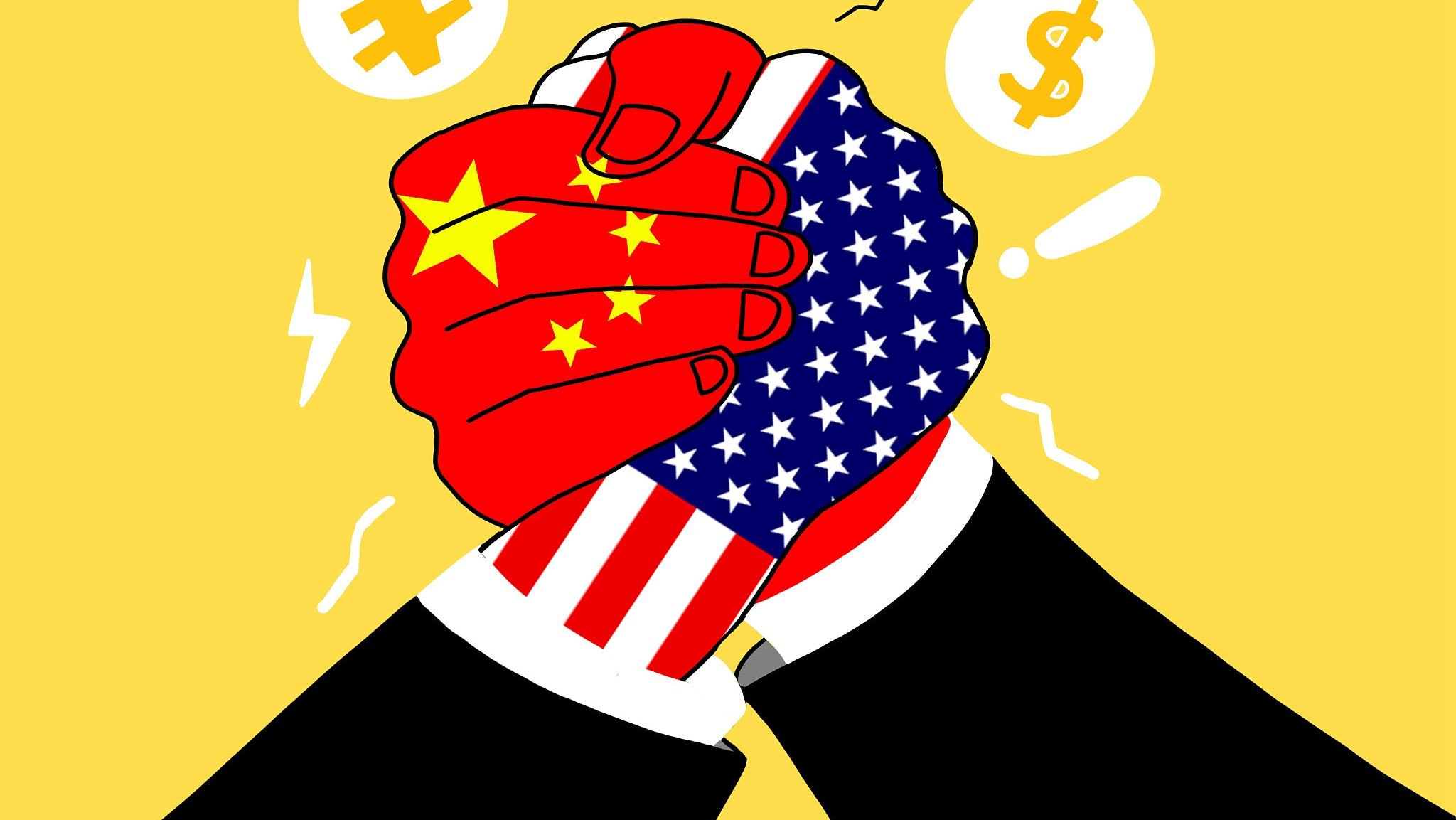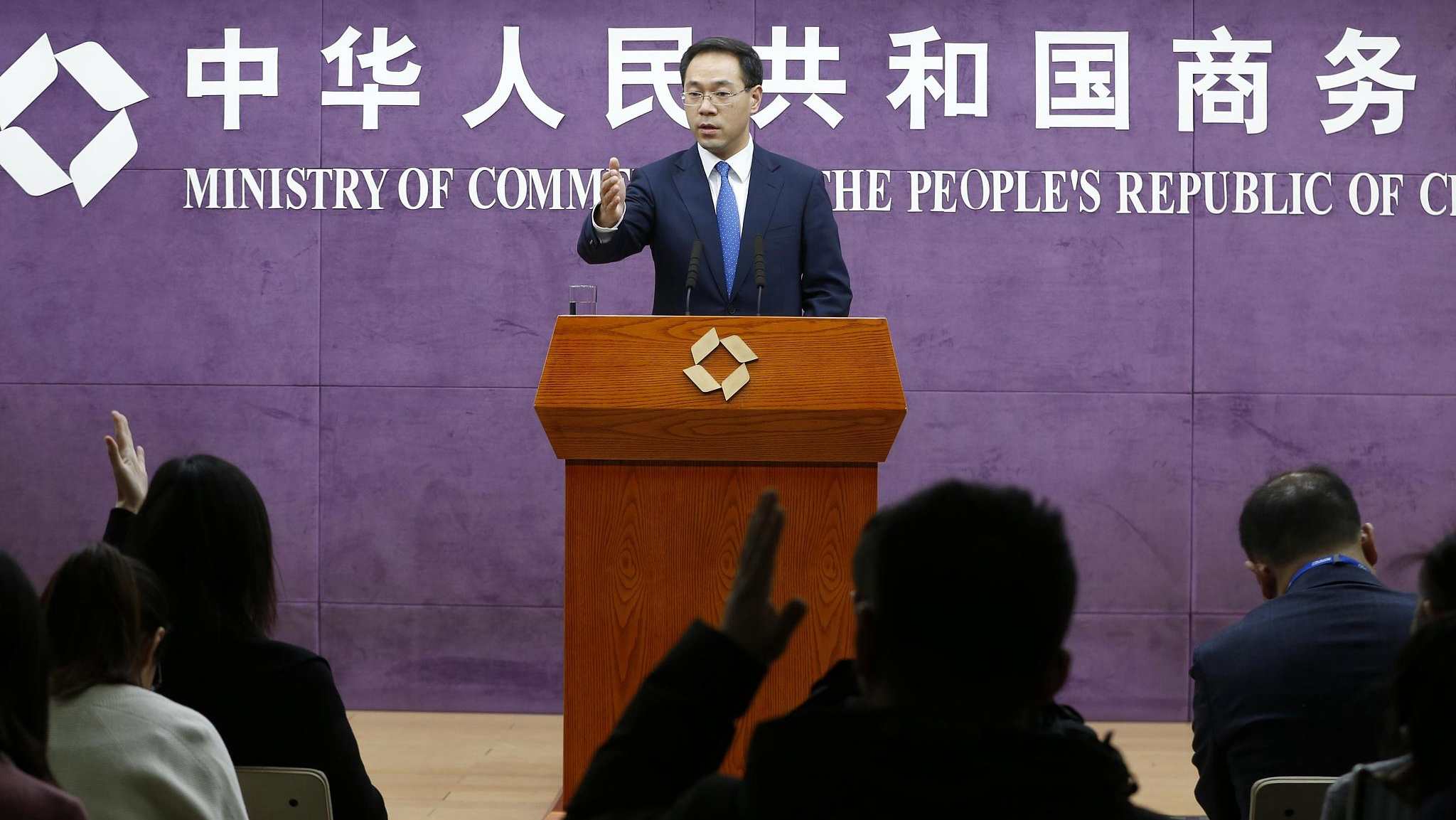
Opinions
11:07, 11-Jan-2019
Opinion: A good outcome to the trade dispute requires work by both sides
Updated
10:05, 14-Jan-2019
CGTN

Editor's note: The following is an edited translation of an article from the Chinese-language "Commentaries on International Affairs" that first published on China Plus on January 10, 2019.
The vice-ministerial talks on China-U.S. economic and trade issues ended in Beijing on Wednesday. The talks were the first face-to-face meetings on these issues since President Xi and President Trump met in Argentina.
Gao Feng, the spokesperson from China's Commerce Ministry, said on Thursday that the extended talks demonstrate a commitment by the two sides to implement the consensus reached by the leaders of the two countries when they met during the G20 Summit in Buenos Aires. And in another encouraging sign, Gao said the series of talks will continue as scheduled. Although little is known about the specifics of these latest talks, what is known suggests a renewed optimism that an agreement can be reached that will deescalate the tensions.

Chinese Commerce Ministry spokesman Gao Feng speaks at a regular news conference, Jan 10, 2019. //VCG Photo
Chinese Commerce Ministry spokesman Gao Feng speaks at a regular news conference, Jan 10, 2019. //VCG Photo
During the talks, the United States put forward what it calls 'structural issues' with China's economy. Some of these issues go straight to the heart of the structure of China's economy and are not up for negotiation. But others are already being addressed through China's policy of reform and opening up. For example, on the issue of intellectual property protection, the implementation of an innovation-driven development strategy has intensified the protection of intellectual property rights. Draft amendments to the Patent Law recently debated by China's legislature would introduce punitive measures for breaches of intellectual property rights, and would severely punish intellectual property infringement.
Chinese President Xi Jinping has said that China's reform process has "entered deep water". Reforms that deal with issues such as intellectual property protection, technical cooperation, market access, and non-tariff barriers must all be carried out in the process of achieving high-quality development in China. The reforms will raise challenges that the government and business sectors need to address, but this is an inevitable part of the process. The overlap between what China needs and what America wants shows that there is common ground between the two sides on some of the issues.
The reason why the two sides have started to make progress in the talks after more than nine months of escalating tensions is the growing pains caused by the dispute. U.S. stocks have had a sharp adjustment since mid-October. U.S. trade deficit reached 50.5 billion U.S. dollars in November – the highest monthly deficit in six years. And America's manufacturing purchasing managers' index (PMI) slowed to the lowest point in two years in December, while at the same time China's PMI fell back below 50 points and into the red last month.
From a global perspective, the World Bank recently lowered its global economic growth forecast to 2.9 percent and 2.8 percent respectively for this year and 2020, which is 0.1 percentage points lower than the forecast in June last year. And there are growing concerns about the impact of the trade war on world financial markets and the broader global economy.
According to the agreement reached last year by President Xi Jinping and President Donald Trump, the two sides have a 90-day window to negotiate. The clock has reached the 40-day mark, which leaves little time for the two sides to reach a solid, workable agreement that meets both their needs. For its part, China has done its utmost to resolve the differences between the two sides. And the statement released by the Chinese side suggests it is optimistic that continuing progress can be made. But success relies on both sides doing the hard work required to make a lasting deal.
(If you want to contribute and have specific expertise, please contact us at opinions@cgtn.com.)

SITEMAP
Copyright © 2018 CGTN. Beijing ICP prepared NO.16065310-3
Copyright © 2018 CGTN. Beijing ICP prepared NO.16065310-3